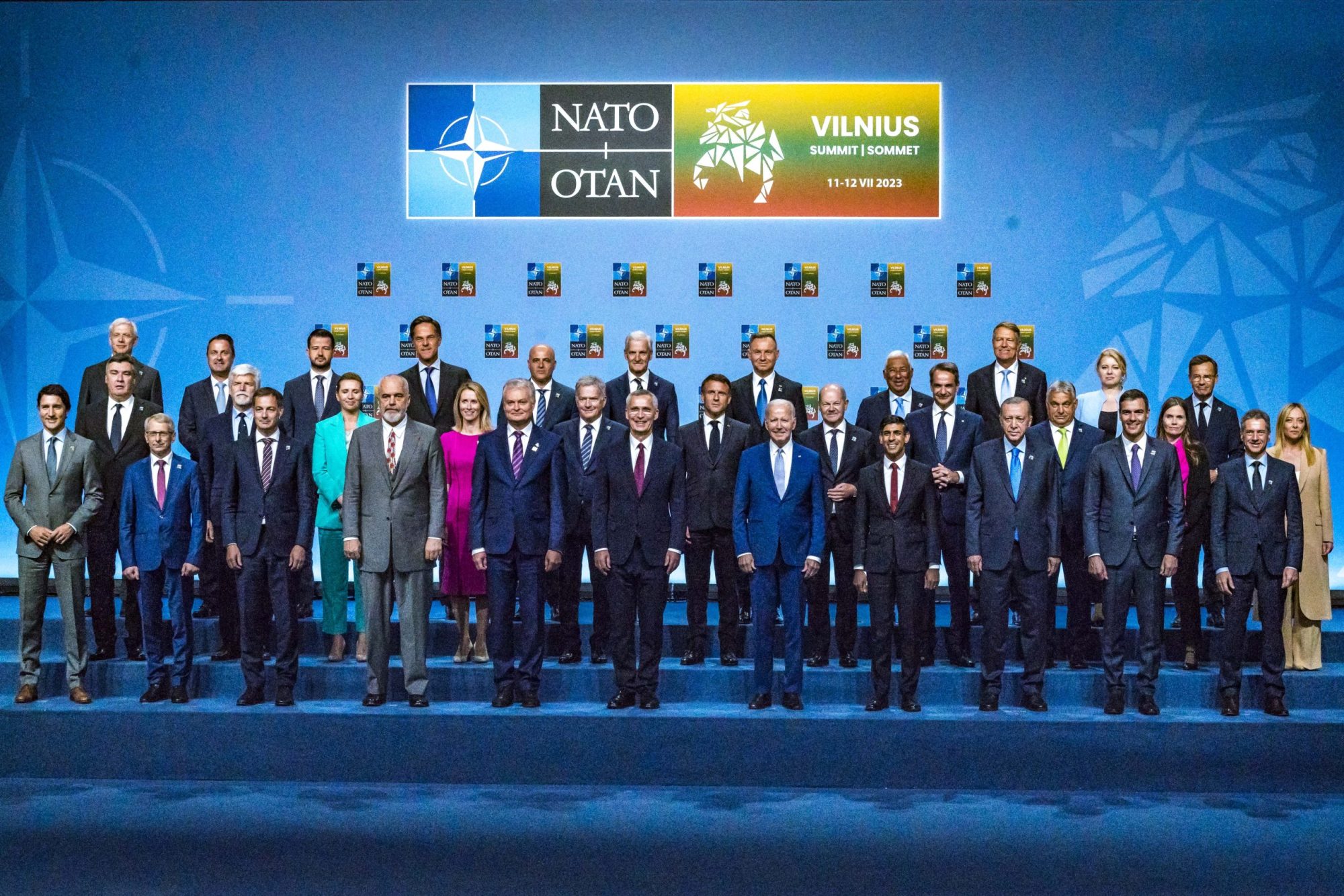Overview of NATO Summit in Washington DC

Nato summit washington dc – The NATO Summit in Washington DC was a historic event that brought together world leaders to discuss the future of the alliance. The summit was held on April 3-4, 2019, and was attended by President Donald Trump, German Chancellor Angela Merkel, French President Emmanuel Macron, and other leaders from NATO member countries.
The NATO summit in Washington DC brought together leaders from across the alliance to discuss the future of the organization. Among those in attendance was Marco Rubio , a Republican senator from Florida who has been a vocal supporter of NATO.
Rubio spoke about the importance of the alliance in deterring Russian aggression and maintaining stability in Europe. He also called for increased defense spending by NATO members.
The key objectives of the summit were to reaffirm the commitment of NATO members to the alliance, to discuss the challenges facing the alliance, and to develop a plan for the future. The summit agenda included discussions on a range of issues, including the rise of China, the threat of terrorism, and the future of arms control.
The NATO summit in Washington, D.C. brought together leaders from across the globe to discuss pressing international issues. While the summit was underway, a Trump rally took place nearby, drawing a large crowd of supporters. The rally served as a reminder of the deep political divisions within the United States, even as world leaders gathered to address common challenges.
Key Outcomes of the Summit
- The summit resulted in a number of key outcomes, including:
- A reaffirmation of the commitment of NATO members to the alliance.
- A commitment to increase defense spending by NATO members.
- A plan to develop a new strategy for the alliance.
Key Discussions and Agreements

The NATO Summit in Washington DC focused on several key topics, including the ongoing war in Ukraine, the alliance’s long-term strategy, and its relationship with partners in the Indo-Pacific region.
One of the most significant agreements reached at the summit was the adoption of a new Strategic Concept, which will guide NATO’s strategy for the next decade. The new Strategic Concept recognizes the evolving security environment, including the growing threat from Russia and China, and sets out a number of new initiatives to strengthen the alliance’s deterrence and defense capabilities.
Another key agreement was the establishment of a new NATO Innovation Fund, which will provide funding for research and development of new technologies that can be used to enhance the alliance’s capabilities. The Innovation Fund is a significant investment in NATO’s future, and it will help to ensure that the alliance remains at the forefront of technological innovation.
The summit also saw the signing of a number of bilateral agreements between NATO member states and partner countries. These agreements will strengthen cooperation on a range of issues, including defense, security, and trade.
Strengthening NATO’s Deterrence and Defense, Nato summit washington dc
The new Strategic Concept adopted at the summit sets out a number of new initiatives to strengthen NATO’s deterrence and defense capabilities. These initiatives include:
- Increasing the size of the NATO Response Force from 40,000 to 300,000 troops.
- Deploying new air and missile defense systems to protect NATO territory.
- Developing new technologies to counter hybrid warfare and cyberattacks.
These initiatives will significantly enhance NATO’s ability to deter and defend against potential threats.
Investing in NATO’s Future
The NATO Innovation Fund is a significant investment in NATO’s future. The fund will provide funding for research and development of new technologies that can be used to enhance the alliance’s capabilities. These technologies could include new weapons systems, sensors, and communications systems.
The Innovation Fund will help to ensure that NATO remains at the forefront of technological innovation and that it has the capabilities to meet the challenges of the future.
Strengthening Cooperation with Partners
The summit also saw the signing of a number of bilateral agreements between NATO member states and partner countries. These agreements will strengthen cooperation on a range of issues, including defense, security, and trade.
These agreements are a sign of NATO’s commitment to working with partners to build a more secure and stable world.
Regional Security and Cooperation: Nato Summit Washington Dc
NATO leaders discussed a range of regional security challenges during the Washington DC Summit. These included concerns about Russia’s ongoing aggression in Ukraine, the rise of terrorism and instability in the Middle East and North Africa, and the growing influence of China in the Indo-Pacific region.
NATO members expressed their continued commitment to supporting Ukraine’s sovereignty and territorial integrity and condemned Russia’s illegal annexation of Crimea. They also discussed ways to strengthen NATO’s deterrence and defense posture in the face of Russian aggression.
NATO leaders also addressed the challenges posed by terrorism and instability in the Middle East and North Africa. They recognized the need to work with regional partners to address the root causes of instability and to prevent the spread of terrorism.
Finally, NATO members discussed the growing influence of China in the Indo-Pacific region. They expressed their concerns about China’s military buildup and its increasingly assertive behavior in the region. NATO leaders pledged to continue to engage with China and to work with regional partners to maintain peace and stability in the Indo-Pacific.
NATO’s Plans for Addressing Regional Security Challenges
NATO has a number of plans in place to address regional security challenges. These include:
- Continuing to support Ukraine’s sovereignty and territorial integrity
- Strengthening NATO’s deterrence and defense posture
- Working with regional partners to address the root causes of instability in the Middle East and North Africa
- Preventing the spread of terrorism
- Engaging with China and working with regional partners to maintain peace and stability in the Indo-Pacific
NATO is committed to working with its partners to address these challenges and to ensure the security of the Euro-Atlantic region.